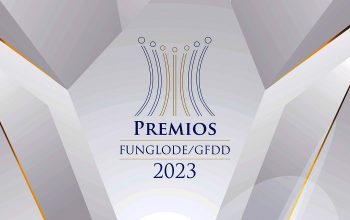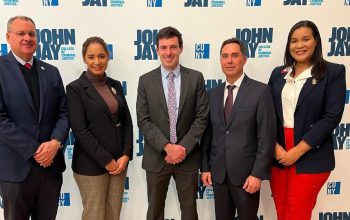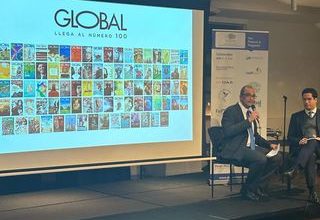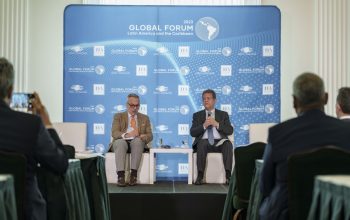news
GFDD and FUNGLODE present the Dominican Republic Environmental Film Festival, September 8 – 11, 2011
August 17, 2011
Global Foundation for Democracy and Development (GFDD) and its sister institution in the DR, Fundación Global Democracia y Desarrollo (FUNGLODE), announced the dates of a new initiative, the DR Environment Film Festival, which will be held on September 8 – 11, 2011, in Santo Domingo and Santiago, Dominican Republic.
Conservation and protection of the environment has been a high priority concern for both GFDD and FUNGLODE and the DR Environmental Film Festival (DREFF) will bring much needed attention to this topic in a format that is as educational as it is entertaining. DREFF will also serve as an eagerly anticipated accompaniment to the Dominican Republic Global Film Festival (DRGFF) where, in 2006, the need for more quality films on raising awareness about the environment was first
discussed.
The Environmental Film Festival will provide youth and general audiences the opportunity to watch dozen of the world’s best and most beautiful, informative and educational environmental films of the year, and learn about pressing issues the world’s ecology is facing. Some of the themes the selected films will address to its audiences concern pollution, climate change, biodiversity, forests and food security,
globalization and consumption, and ocean conservation.
In a series of presentations, the Festival will highlight topics of interest to the Environment Community including: a) a history of the conservation efforts of marine mammals in the Dominican Republic with a special 25th anniversary celebration of the Marine Mammal Sanctuary featuring a keynote address by renowned oceanographer Sylvia Earle who will address the subject of the importance of
marine protected areas and “Hope Spots”; b) a focused analysis of the global problem of ocean pollution, especially in relation to the disposal of non-biodegradable plastic trash in worldwide waters; and c) a celebration of the DR’s wealth of ecosystems and species that makes it one of the richest countries in the world in terms of biological diversity.
FESTIVAL OVERVIEW AND
HIGHLIGHTS
A) VENUES
There are 3 venues for the films of which 6 will be screened at the FUNGLODE auditorium, 7 in the Auditorio Manuel de Cabral Biblioteca Pedro Mir, UASD and a further 5 in Auditorio Centro Cultural Eduardo Leon Jiminez, Centro Leon in Santiago.
B) FILM SELECTIONS
This year the Festival will present 17 documentary films
including 13 features and 4 shorts:
Features:
1. Bag It/ ¡Basta de bolsas!
2. Parque Nacional del Este: Refugio de la naturaleza y cuna de la cultura
3. Plan B: Mobilizing to Save Civilization
4. The Polar Explorer/El explorador polar
5. Cuba: The Accidental Eden/ Cuba: el edén
accidental
6. The Last lions
7. Vanishing of the Bees/Desaparición de las abejas
8. Dirt! The movie
9. The Economics of Happiness/ La economía de la felicidad
10. Play Again/Volver a jugar
11. Wild Ocean/ Océano salvaje
12. Ocean Voyagers
13. Where the Whales Sing/ Donde cantan las
ballenas
Shorts:
1. Plastic Bag
2. Luchando por la Vida- una historia del mar
3. Once Upon a Tide/Érase una vez el océano
4. The Story of Stuff/ La historia de las cosas
C) OPENING NIGHT ACTIVITIES
Santiago – September 7,
2011
Opening night in Santiago will present the feature film “Bag it”, where Director Suzan Beraza tackles the issues of discarded plastic. In the movie, an average guy makes a resolution to stop using plastic bags at the grocery store. Little does he know that this simple decision will change his life completely. He comes to the conclusion that our consumptive use of plastic has finally caught up to us, and looks
at what we can do about it right now.
Santo Domingo – September 8, 2011Hosted at the FUNGLODE headquarters in Santo Domingo on the evening of September 8, 2011, opening night festivities will include both a screening of the feature film “Cuba: The Accidental Eden” by writer/producer Doug Schultz as well as a presentation celebrating the publication of the newly released Environmental
Dictionary.
“CUBA: The Accidental Eden,” is a movie about Cuba and how despite the fact that it may have been restricted politically and economically for the past 50 years, its borders, and especially its undeveloped islands, have remained an irresistible draw to wildlife . Should the U.S. trade embargo be lifted, however, most experts predict that Cuba’s wildlife, protected until now, could suffer devastating
consequences. Tourism and the economic development associated with tourism could change the face of what was once a nearly pristine ecosystem. Alternatively, Cuba could set an example for development and conservation around the world, defining a new era of sustainability well beyond Cuba’s borders.
A discussion with the film’s writer and producer, Doug Schultz, and actor David E. Guggenheim, who stars in the film, will follow
the screening. Special guest oceanographer Dr. Sylvia Earle, also known as the “Ambassador of the Oceans”, will round off the discussion with a keynote address highlighting many of the marine-life related issues raised in the movie. Dr. Earle is Explorer in Residence at the National Geographic Society and to date has led over 70 expeditions, logging more than 6500 hours underwater.
The newly released
Environmental Dictionary, which represents the most up-to-date and complete source of information on the country’s environment and natural resources, examines the current state of the environment in the Dominican Republic and its relationship and impact on other areas that are vital for its development. It includes an incredible 712 defined environmental terms, 58 table sets, 123 graphics, over 900 photos as well as 19 scientific articles which focus on present day environmental
challenges and the conservation methods that can be used to overcome them.
The Dictionary, a result of almost seven years of intense work carried out by an international team of experts, was previously launched in electronic format in Spanish with the fundamental idea of turning it into an interactive project, to which both national and international environmentalists would be able to contribute. An English version of the book is due out later this
year.
D) ACTIVITIES & WORKSHOPS
The Festival will also offer opportunities for spectators to interact with leading figures in the environmental community – producers, directors, researchers, adventurers, and explorers – through a series of 6 community activities/panels/workshops and 3 networking events designed to share best practices and support the sustainable development of the
country. To that end, more than 50 national and international panelists and environment advocates will come together to appreciate and value the diversity and beauty the country has to offer and promote greater environmental stewardship.
These leading experts and film makers include:
- Doug Shultz &David Guggenheim: Cuba: the Accidental Eden
- Lisa Kass Boyle: Plastic
Pollution Coalition - Suzan Beraza: Bag it
- George Langworthy & Maryam Henein: Vanishing of the Bees
- Mark Terry: Polar Explorer
- Meg Merrill & Greg LeMieux: Play Again
- Andrew Stevenson: Where the Whales Sing
Panel discussions will cover
environmental documentary filmmaking, the importance of biodiversity, the challenges of discarded plastic, education and nature, the omnipresent issue of climate change, and the importance of scientific exploration amongst others.
E) SCHOOL PROGRAM
The Festival also offers a school program in partnership with the Ministry of Education, designed to inspire Dominican youth to adopt practices that will ensure the
country’s current and future environmental sustainability and health. There will be 5 morning screenings dedicated solely for this purpose. In addition there will be community activities such as beach cleanings and the creation of community gardens.





